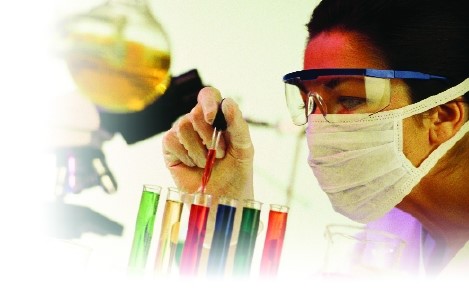
Phlebotomy Program
The Phlebotomist is a vital member of the clinical laboratory team, whose main function is to obtain patient’s blood specimens by venipuncture, microcollection, and transport other clinical lab specimens.
Phlebotomists are employed through the health care system – hospitals, health care centers, clinics and laboratories, medical practices, or public health facilities. Many specialties in the healthcare setting use and need the skills of phlebotomy such as Medical Technicians and Technologist, Nurses, Emergency Medical Technicians, Nursing Assistants, Medical Laboratory Assistants and Paramedics are just a few professions whose job encompasses drawing blood.
The field has expanded in the past several years, and role of this integral member of the health care team has been brought into special focus. The threats of AIDS, hepatitis B, risk of many segments of society from other infectious diseases has emphasized the need for expanding the training process while maintaining the highest standards of instructions. Patient and health care workers’ safety and quality assurance are essential to the health care process.
Phlebotomists are employed through the health care system – hospitals, health care centers, clinics and laboratories, medical practices, or public health facilities. Many specialties in the healthcare setting use and need the skills of phlebotomy such as Medical Technicians and Technologist, Nurses, Emergency Medical Technicians, Nursing Assistants, Medical Laboratory Assistants and Paramedics are just a few professions whose job encompasses drawing blood.
The field has expanded in the past several years, and role of this integral member of the health care team has been brought into special focus. The threats of AIDS, hepatitis B, risk of many segments of society from other infectious diseases has emphasized the need for expanding the training process while maintaining the highest standards of instructions. Patient and health care workers’ safety and quality assurance are essential to the health care process.
Program Description
This Program is designed for the person who is interested in learning more about phlebotomy. If you are an experienced nurse or other healthcare professional looking to add to your resume, or a beginner, just considering a career in the healthcare field then, this course is for you. The Phlebotomy Certificate Program is a four month program (260 contact hours) that provides a course with objectives and experiences which fulfill the eligibility requirements of national certification agencies. The Program is comprised of didactic/lecture presentations and practical experiences that are taught in a classroom, lab and clinical sites.
Course Requirements
Students must be interested in learning more about phlebotomy. This is a self-paced course with no formal meeting times. To successfully complete this course the student must read all materials provided, complete all assignments and quizzes and participate in any class forum that may be attached to the lesson by simply submitting a reply to any question posed. The class forums are designed to promote discussion on topics with other students.
The single most important goal of this course is to educate the student from any starting point he or she may be at to become more knowledgeable and skillful in phlebotomy.
The single most important goal of this course is to educate the student from any starting point he or she may be at to become more knowledgeable and skillful in phlebotomy.
Course Subjects
The profession of phlebotomy is taught through didactic, student laboratory, and clinical experiences. The student will be trained to perform a variety of blood collection methods using proper techniques and precautions including: vacuum collection devices, syringes, capillary skin puncture, butterfly needles and blood culture specimen collection on adults, children and infants.
Emphasis will be placed on infection prevention, proper patient identification, proper labeling of specimens, and quality assurance. Students will be taught specimen handling, processing and accessioning. Students will learn the theory and principles of CLIA waived laboratory tests and perform the tests in the student laboratory. The testing performed will include: manual hematocrits, automated hemoglobin and glucose testing, Urinalysis dipsticks, fecal occult blood, erythrocyte sedimentation rate and pregnancy testing.
Emphasis will be placed on infection prevention, proper patient identification, proper labeling of specimens, and quality assurance. Students will be taught specimen handling, processing and accessioning. Students will learn the theory and principles of CLIA waived laboratory tests and perform the tests in the student laboratory. The testing performed will include: manual hematocrits, automated hemoglobin and glucose testing, Urinalysis dipsticks, fecal occult blood, erythrocyte sedimentation rate and pregnancy testing.
Program Goals
Clinical Placement
At the final phase of the curriculum, students will be placed at one of the clinical facilities for the clinical experience. This period of the training provides students with an opportunity to put into practice in a genuine clinical setting, the theory and skills learned in the simulated class/lab environment. Because the clinical site student will be working and interacting with patients and employees at the assigned facility, this component of the Program must be treated with extreme care and respect.
Curriculum
Admission Requirements
The following explains the requirement an applicant must meet to be considered for admission:
